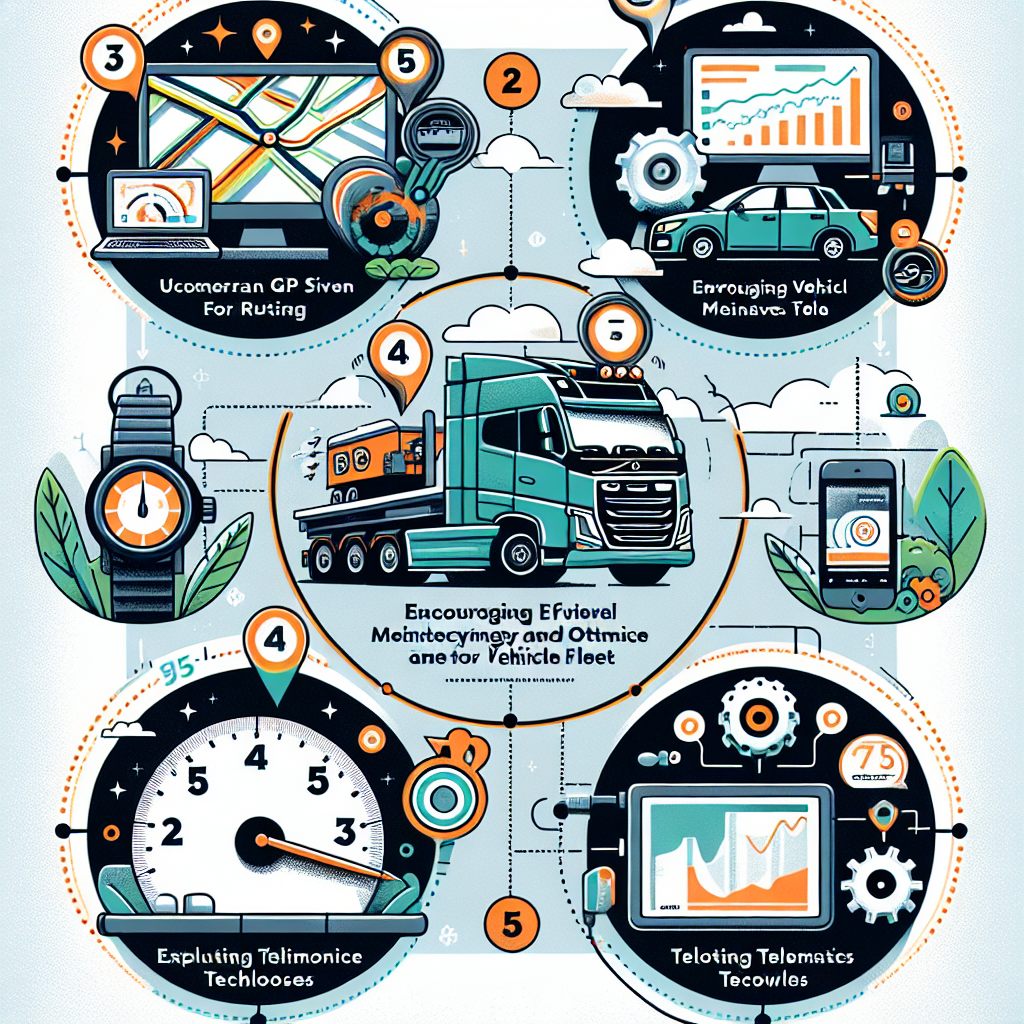Boost Fuel Efficiency: 5 Data-Driven Strategies to Optimize Your Fleet
Boost Fuel Efficiency: 5 Data-Driven Strategies to Optimize Your Fleet
Introduction
In an era where fuel costs are soaring and environmental concerns are at the forefront, optimizing fleet fuel efficiency has become a critical priority for businesses. This article explores five innovative, data-driven strategies that can significantly enhance the fuel efficiency of your fleet, leading to cost savings and reduced environmental impact.
1. Leverage Telematics Technology
Telematics systems provide real-time data on vehicle performance and driver behavior, enabling fleet managers to make informed decisions.
- Monitor fuel consumption patterns.
- Identify inefficient driving habits.
- Optimize routes for reduced fuel usage.
2. Implement Predictive Maintenance
Regular maintenance is crucial, but predictive maintenance takes it a step further by using data analytics to predict and prevent potential issues.
- Reduce unexpected breakdowns.
- Ensure vehicles operate at peak efficiency.
- Extend the lifespan of fleet vehicles.
3. Optimize Route Planning
Advanced route planning tools can significantly cut down on unnecessary mileage and fuel consumption.
- Utilize GPS and traffic data for efficient routing.
- Minimize idle time and detours.
- Enhance delivery times and customer satisfaction.
4. Train Drivers for Fuel-Efficient Driving
Driver behavior has a direct impact on fuel efficiency. Training programs can help drivers adopt more fuel-efficient practices.
- Encourage smooth acceleration and braking.
- Promote adherence to speed limits.
- Educate on the benefits of reduced idling.
5. Invest in Fuel-Efficient Vehicles
Transitioning to more fuel-efficient vehicles or alternative fuel options can yield long-term savings and environmental benefits.
- Consider hybrid or electric vehicles.
- Evaluate the total cost of ownership.
- Stay informed about emerging vehicle technologies.
Conclusion
By implementing these data-driven strategies, fleet managers can achieve significant improvements in fuel efficiency, leading to cost savings and a reduced carbon footprint. Embracing technology and training, along with strategic investments in vehicle upgrades, can transform fleet operations and contribute to a more sustainable future.




